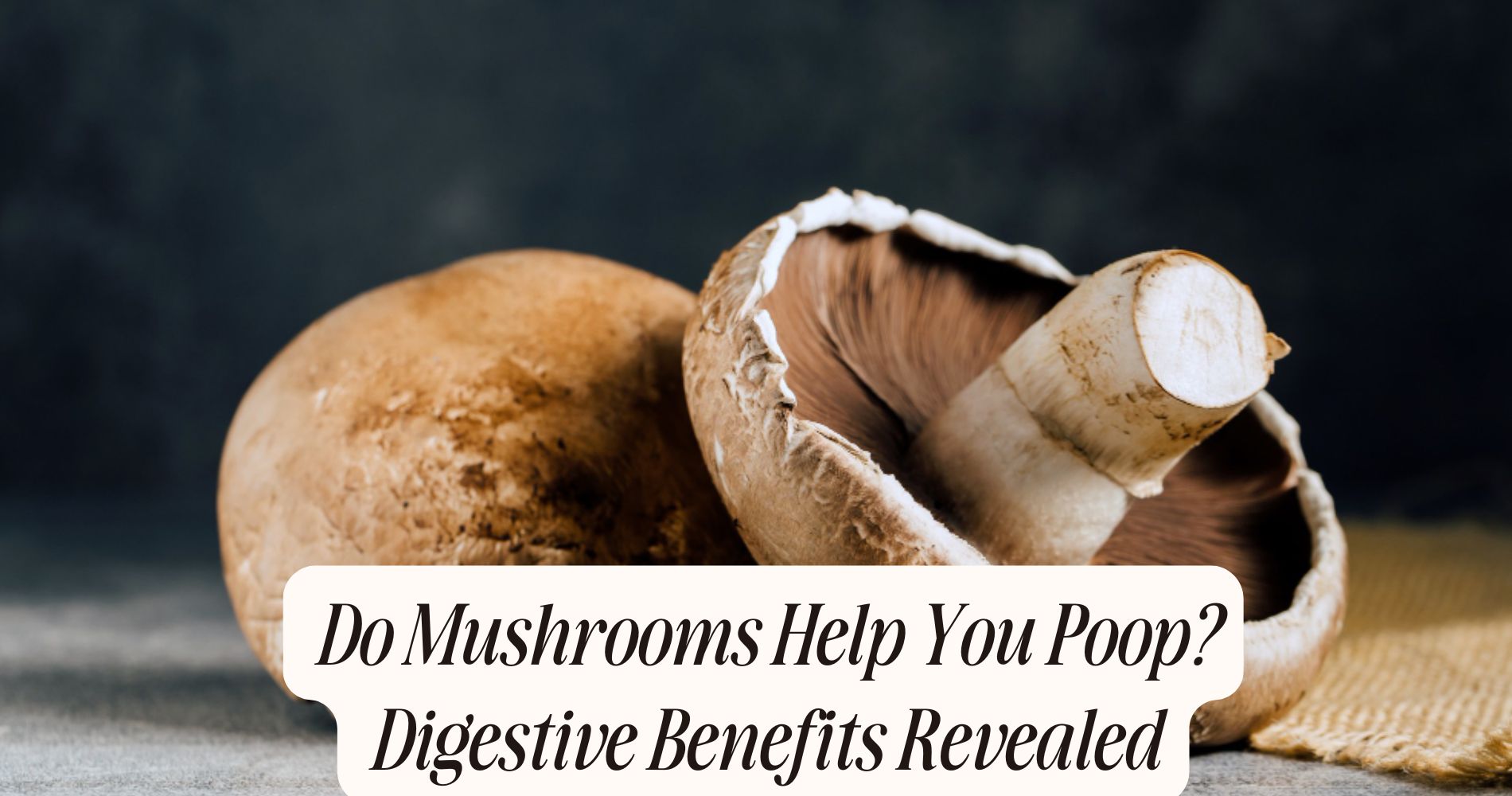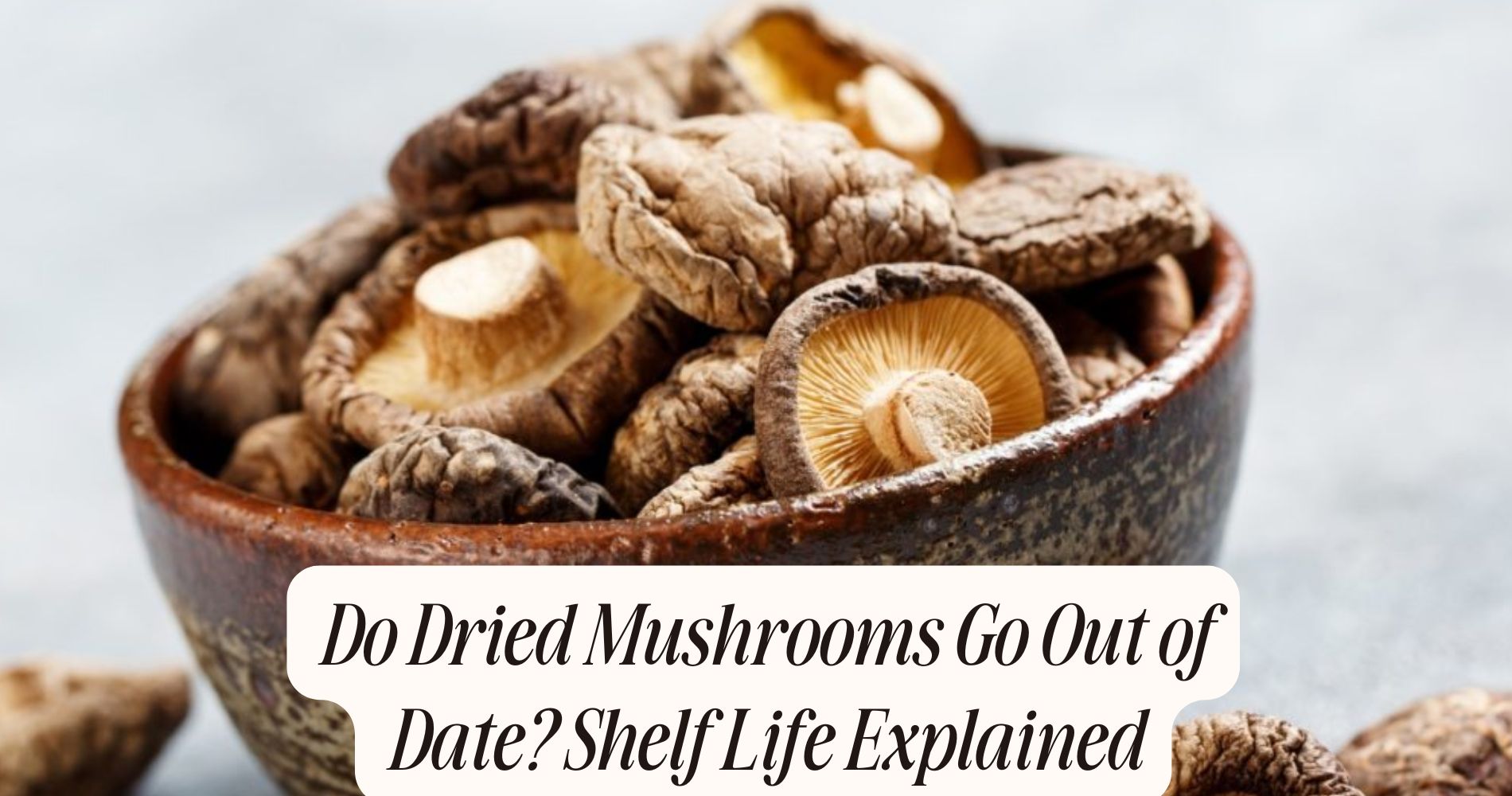
Do Mushrooms Help You Poop? Digestive Benefits Revealed
Do mushrooms help you poop? Mushrooms can definitely help you poop! They're high in dietary fiber, which promotes regular bowel movements and supports overall digestive health. Both soluble and insoluble fibers in mushrooms aid digestion and regulate blood sugar levels. Including varieties like shiitake or portobello not only enhances your meals but also contributes essential nutrients for gut health. If you're curious about the best ways to incorporate mushrooms into your diet, there’s plenty more to discover.
Understanding Digestive Health
When you think about digestive health, it’s essential to understand how your gut functions and the factors that influence it.
Your gut microbiome, a complex community of microorganisms, plays an important role in digestion and overall health. It helps break down food, synthesize vitamins, and maintain a balanced immune system.
Digestive enzymes are another key component, as they facilitate the breakdown of macronutrients. Without sufficient enzymes, your body struggles to absorb nutrients effectively.
Factors such as diet, stress, and antibiotic use can disrupt your gut microbiome and enzyme production.
To support digestive health, focus on a balanced diet rich in fiber, probiotics, and prebiotics, which nourish your beneficial gut bacteria and enhance enzyme activity.
The Nutritional Profile of Mushrooms
Mushrooms are packed with essential nutrients that can boost your overall health. They provide a rich source of vitamins, minerals, and antioxidants while also being low in calories.
Additionally, their high fiber content plays a vital role in supporting digestive health, making them a valuable addition to your diet.
Nutrients in Mushrooms
Packed with essential nutrients, mushrooms are a powerhouse of health benefits.
These fungi are low in calories but high in vitamins and minerals. You'll find significant amounts of B vitamins, such as riboflavin and niacin, which support energy metabolism and brain health.

Mushrooms also contain important minerals like selenium, an antioxidant that helps protect your cells. Additionally, they provide potassium, which aids in heart health and blood pressure regulation.
The unique combination of mushroom nutrients can also enhance your immune function, making them a great addition to your diet.
Fiber Content Explained
Fiber plays an essential role in digestive health, and mushrooms contribute a notable amount to your daily intake. They’re not only low in calories but also serve as valuable fiber sources, which can help regulate your bowel movements.
One cup of cooked mushrooms provides about 1-2 grams of dietary fiber, aiding the growth of beneficial gut bacteria. This fiber helps stimulate digestive enzymes, enhancing nutrient absorption and promoting overall gut health.
Additionally, the unique polysaccharides found in mushrooms, like beta-glucans, can further support digestion. Including mushrooms in your meals can be an effective strategy to boost your fiber intake, making it easier for your body to process food and maintain regularity.
Fiber: The Key to Regularity
Fiber plays an essential role in maintaining digestive health, and understanding its types can enhance your routine.
There are two main categories: soluble and insoluble fiber, each offering unique benefits for regularity.
Types of Dietary Fiber
When it comes to maintaining digestive health, understanding the different types of dietary fiber is essential.
There are two main categories: soluble fiber and insoluble fiber. Soluble fiber dissolves in water, forming a gel-like substance that can help regulate blood sugar levels and lower cholesterol. Foods high in soluble fiber include oats, beans, and certain fruits.
On the other hand, insoluble fiber doesn't dissolve in water, adding bulk to your stool and promoting regular bowel movements. You’ll find this type in whole grains, nuts, and vegetables.
Incorporating both types of fiber into your diet can enhance digestive health and help you stay regular. So, make sure you include a variety of fiber sources in your meals!
Benefits of Fiber Intake
A diet rich in fiber plays an essential role in promoting regular bowel movements and overall digestive health. Fiber helps bulk up your stool and makes it easier to pass, reducing the risk of constipation.
The recommended daily intake for adults is about 25 grams for women and 38 grams for men, but most people fall short. You can easily boost your fiber intake by including various fiber sources like whole grains, fruits, vegetables, legumes, and yes, mushrooms!

Incorporating these foods into your meals not only aids digestion but also supports gut health by feeding beneficial gut bacteria. So, prioritize fiber in your diet to guarantee regularity and enhance your overall well-being.
Types of Mushrooms and Their Benefits
Numerous types of mushrooms offer distinct digestive benefits that can enhance your overall health.
Medicinal mushrooms like reishi and shiitake are known for their immune-boosting properties, which can indirectly support digestion by maintaining gut health.
Gourmet varieties such as portobello and cremini not only add flavor to your meals but also provide dietary fiber, promoting regular bowel movements.

Additionally, lion's mane mushrooms have shown potential in improving gut health by reducing inflammation, which can lead to better digestion.
Including these mushrooms in your diet can be an enjoyable way to support your digestive system while reaping the benefits of their unique nutrients.
Prebiotics and Gut Health
Although you may not realize it, prebiotics play an essential role in maintaining gut health by serving as food for beneficial bacteria.
These prebiotic foods, such as certain mushrooms, garlic, and onions, help nourish your gut microbiome, promoting the growth of healthy bacteria. A balanced microbiome is vital for digestion, immune function, and overall health.
When you consume prebiotics, you're enhancing the environment in your gut, allowing good bacteria to flourish while potentially suppressing harmful ones.
Studies show that a healthy gut microbiome can improve digestion, reduce inflammation, and even support mental health.
Culinary Uses of Mushrooms
When exploring the culinary world, mushrooms stand out for their versatility and rich flavor, making them a popular choice in various dishes. With countless mushroom varieties available, you can experiment with textures and tastes in your cooking.
For example, shiitake mushrooms add a smoky depth, while portobellos can serve as a hearty meat substitute. You can use different culinary techniques—sautéing, grilling, or roasting—to enhance their flavors.
Incorporating mushrooms in soups, salads, or stir-fries not only elevates your meals but also provides nutritional benefits. Whether you’re a seasoned chef or a home cook, mushrooms offer an easy way to enrich your dishes while delighting your palate with their unique umami profile.
Embrace their culinary potential and get creative!
Potential Side Effects of Mushrooms
While mushrooms can be a nutritious addition to your diet, it’s important to be aware of potential side effects. Some people may experience allergic reactions, which can manifest as rashes, itching, or swelling. If you notice these symptoms after consuming mushrooms, it's wise to consult a healthcare professional.

Additionally, mushrooms contain certain fibers that, while beneficial for digestion, may lead to gastrointestinal discomfort for some individuals. This discomfort can include bloating, gas, or diarrhea, especially if mushrooms are consumed in large quantities or if you're not used to high-fiber foods.
To minimize these risks, start with small amounts and monitor your body's response. Understanding these potential side effects can help you enjoy mushrooms safely and effectively.
Incorporating Mushrooms Into Your Diet
Incorporating mushrooms into your diet can be a delicious way to reap their numerous health benefits, especially for digestion. Start by adding them to your favorite mushroom recipes, like stir-fries, soups, or salads. Shiitake and portobello varieties are particularly high in fiber, promoting gut health.
When cooking, try sautéing mushrooms with garlic and olive oil for a flavorful side dish. You can also blend them into smoothies for added nutrients without altering the taste.
For dietary tips, aim to include a variety of mushrooms throughout the week to maximize their benefits. Experiment with dried, fresh, or powdered forms to enhance your meals.
Support Digestive Health with SUPER MUSHROOM GUMMIES
Looking for an easy and delicious way to support your digestive health? Well Gummies’ SUPER MUSHROOM GUMMIES are packed with 10 types of functional mushrooms that help fuel your body and support a balanced gut. These vegan gummies provide natural energy, sharper focus, and immune support, all while tasting like your favorite wild berry candy. With no jitters or crash, you can stay energized and regular all day long with SUPER MUSHROOM GUMMIES!
Frequently Asked Questions
Can Mushrooms Cause Digestive Issues for Some Individuals?
Mushrooms can cause digestive issues for some individuals, particularly those with mushroom intolerance. Their high fiber content might lead to discomfort, bloating, or gas if your digestive system isn't accustomed to processing them.
How Many Mushrooms Should I Eat for Digestive Benefits?
For digestive benefits, aim for about one to two servings of mushrooms per day. Their high fiber content can support gut health, improving digestion. Just remember to gradually increase intake to avoid any discomfort.
Are There Specific Mushroom Varieties That Aid Digestion More Effectively?
Certain mushroom varieties, like lion's mane and shiitake, can effectively aid digestion. Lion's mane promotes gut health through its anti-inflammatory properties, while shiitake benefits your microbiome, enhancing overall digestive function and nutrient absorption.
Can Cooking Mushrooms Affect Their Digestive Health Benefits?
Cooking mushrooms can indeed affect their nutritional content and digestive health benefits. Methods like sautéing or steaming preserve more nutrients, while boiling may cause some beneficial compounds to leach out, impacting their overall effectiveness for digestion.
Do Mushrooms Interact With Any Medications Related to Digestion?
Mushroom compounds can interact with digestive enzymes, potentially affecting how your medications work. It’s crucial to consult your healthcare provider before adding mushrooms to your diet, especially if you're on digestion-related medications.
Conclusion
Incorporating mushrooms into your diet can enhance digestive health thanks to their fiber content and prebiotic properties. These benefits may help improve regularity and overall gut function. Whether you enjoy them in salads, stir-fries, or soups, mushrooms offer versatile culinary options. Just remember to introduce them gradually, as too much too fast can lead to digestive discomfort. By adding mushrooms, you’re not just diversifying your meals but also supporting your digestive wellness.




